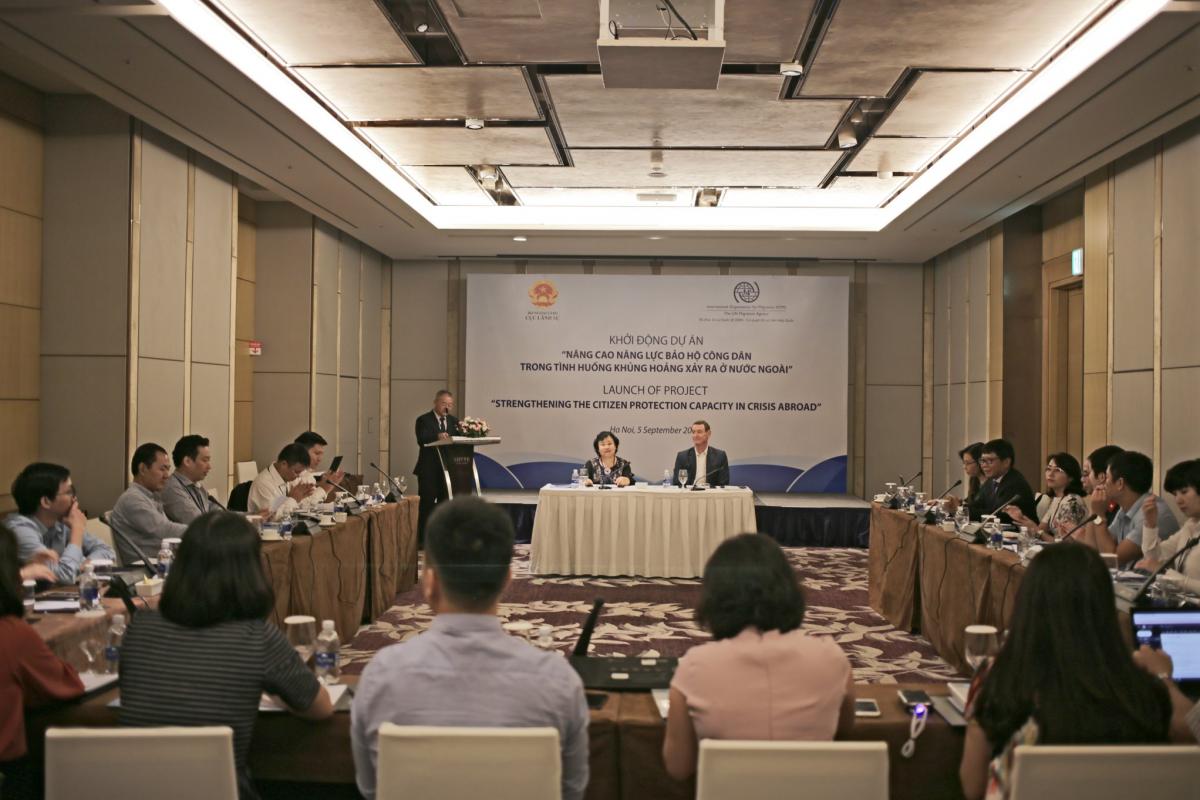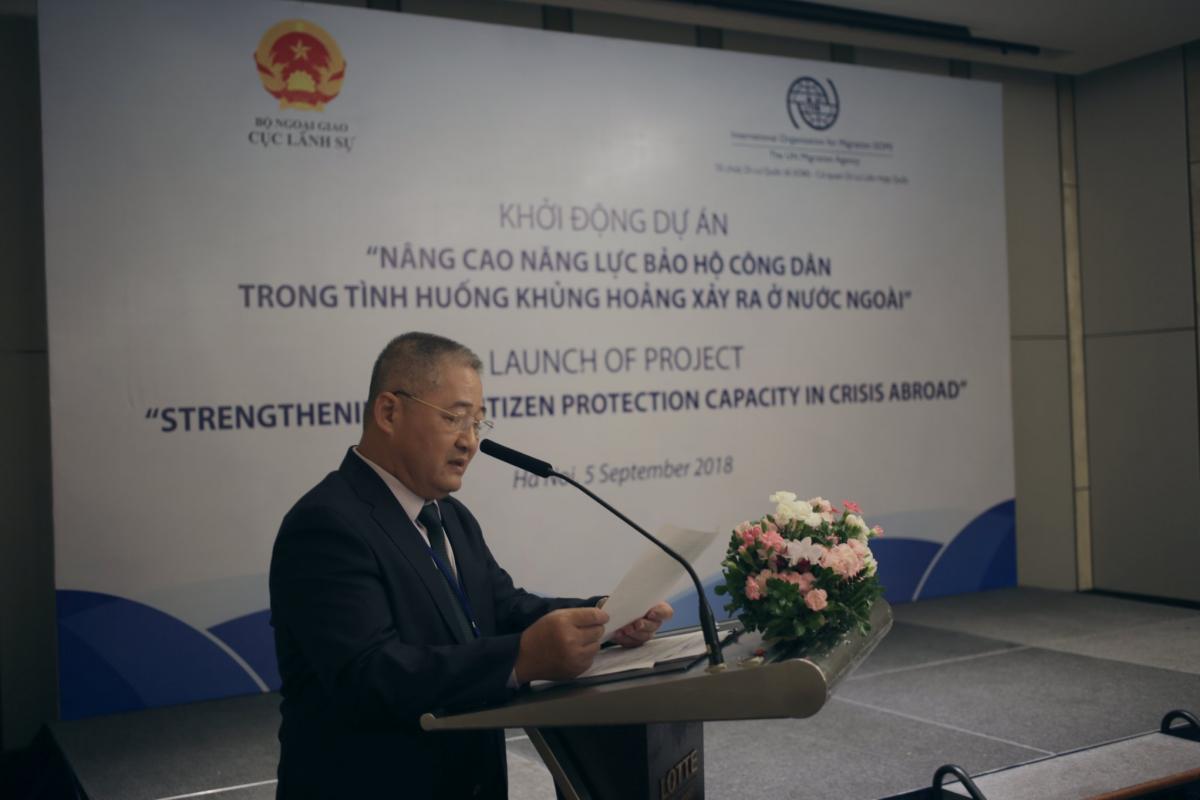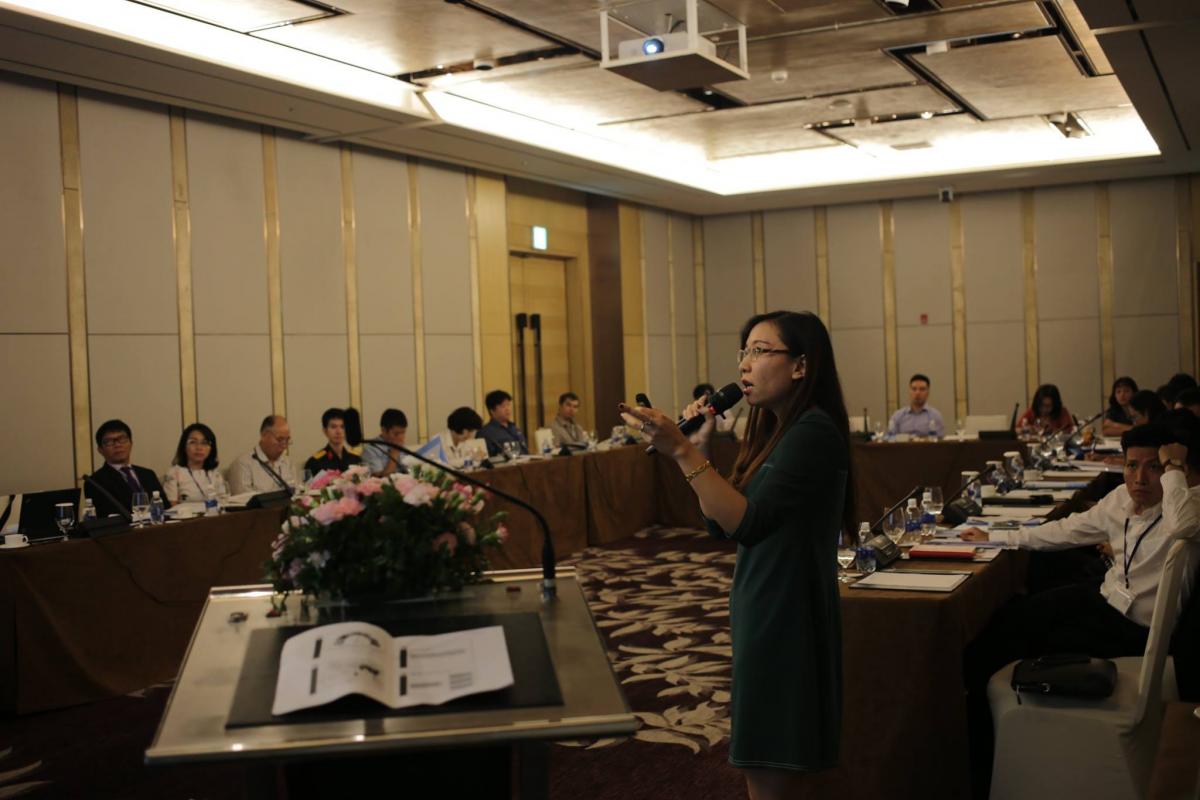-
Who We Are
WHO WE AREThe International Organization for Migration (IOM) is part of the United Nations System as the leading inter-governmental organization promoting since 1951 humane and orderly migration for the benefit of all, with 175 member states and a presence in over 100 countries. IOM has had a presence in Viet Nam since 1987.
About
About
IOM Global
IOM Global
-
Our Work
Our WorkAs the leading inter-governmental organization promoting since 1951 humane and orderly migration, IOM plays a key role to support the achievement of the 2030 Agenda through different areas of intervention that connect both humanitarian assistance and sustainable development. Across Viet Nam, IOM is concerned with the welfare and quality of life of the Vietnamese people, particularly migrant and mobile populations.
Cross-cutting (Global)
Cross-cutting (Global)
- Data and Resources
- Take Action
- 2030 Agenda
IOM and the Consular Department, Ministry of Foreign Affairs Officially Kicked off Their Joint Project on Citizen Protection in Crisis Abroad
Ha Noi - IOM and the Consular Department, Ministry of Foreign Affairs officially kicked off their joint project on citizen protection in crisis abroad.
The project launch was marked by a workshop gathering 30 representatives from 16 related government agencies. Addressing the event, IOM Chief of Mission – Mr. David Knight said that the project sought to establish a consular crisis mechanism (CCM) to better assist Vietnamese nationals caught by a crisis abroad while enhancing the capacity of the consular staff in citizen protection. In addition to the CCM, the project also aims at other major outcomes including a standard operating procedure (SOP), a training document and training courses on citizen protection in crisis abroad. As a reference point for the CCM, IOM introduced the Migration Crisis Operation Framework which presents guidelines on coordination steps in response to crisis situations.
In a bid to deliver the outcomes, the participants discussed the formation of an interagency taskforce which involves relevant ministries and branches in providing information, support and ideas to achieve the project’s results. The participants agreed that the establishment of the CCM with the support of the taskforce is of great importance amid the growth of unpredictable crises varying in scale and severity. However, they suggested that the Terms of Reference (ToR) for the taskforce should specify concrete responsibilities for members and expect that the CCM should ideally be made official by a circular or decree rather than exist as a guideline. After the launch, the ToRs will be refined and approved so that the interagency taskforce can start its role to support implementation of the project.




